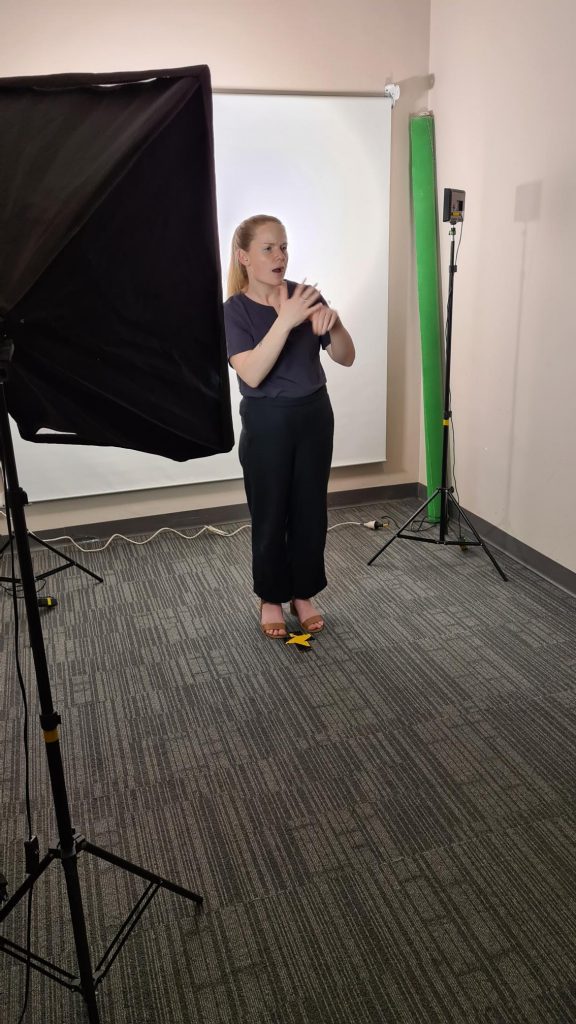Annual Review stories Community stories: 10 November 2022
In the last few years, bushfires, floods and other extreme weather events have become more common in parts of Australia. In South Australia, people living in metropolitan and remote, rural and regional areas have become more accustomed with these types of events hitting their communities. Preparation and planning is key to ensuring minimal damage to human life and infrastructure. But for people living with a disability preparedness can sometimes be tricky – especially if important messaging isn’t accessible.
As of 2015, there were nearly 200,000 people in South Australia living with deafness or hearing loss (2015 National Health Survey, ABS). In times of emergency when clear communication is vital, there is a large window for confusion when first responders are unable to communicate with residents in disaster-affected areas. To close this gap, Deaf Can:Do developed the Talking Hands for Frontline Responders project.
Using a $25,000 grant through the FRRR News Corp Bushfire Fund program, the aim of the project was to provide training to South Australian Country Fire Service (SA CFS) volunteers across the state to effectively communicate with the deaf and hard of hearing community by teaching them basic AUSLAN skills and other ways to communicate.
Unfortunately, COVID and an active fire season meant SA CFS had reduced capacity to help co-design the learning content. With permission from FRRR, Deaf Can:Do redirected a portion of funding to purchase a Learning Management System authoring tool. Staff were upskilled in the use of this tool, so that learning design and course builds could be completed internally. The tool allowed for the sharing of content and proposed course materials via a simple link that updated in real-time, which led to ease of communication around changes required, and ultimately supported tailoring content for the target audience. The co-design process greatly benefited from this. The course was finalised internally at Deaf Can:Do, and then exported into CFS’s own learning management system with their support.
During the consultation and content development period, the CFS identified that volunteers would benefit from communication skills and strategies training as well as Auslan language training, so the scope of content was broadened to include this identified need. CFS also provided feedback around specific needs of volunteers, English literacy considerations and accessibility to information.
As a result, the seven module course introduces learners to some simple Auslan that has been tailored to the needs of the CFS, and covers which skills and strategies are most appropriate for different community members, as well as some common mistakes to avoid. The training includes Auslan videos, interactive quizzes, interactive simulations and more to guide learners through the course, as well as links to further resources.
The e-learning course now features on the CFS’s learning management system, and is available to all volunteers across the service. The training, which can be completed at any time, provides basic but important skills that allow CFS volunteers to successfully communicate relevant and important information to the deaf and hard of hearing community. This successful project will have several positive impacts on South Australian communities in times of disasters. Volunteers can now confidently communicate to people living with hearing impairments, and it will also build relationships between these community groups and help spread useful information to other people. The program can also be rolled out to CFS groups across the country which will play a major role in disaster preparedness nationally.
Feedback was collected from the volunteers who participated via a survey link embedded in the course. The response was a strong “Very Useful”, while others felt that the practical advice like using a mobile phone to write was very helpful too.
For more inspiring stories like this, head to our FY 2021/22 Annual Review.


